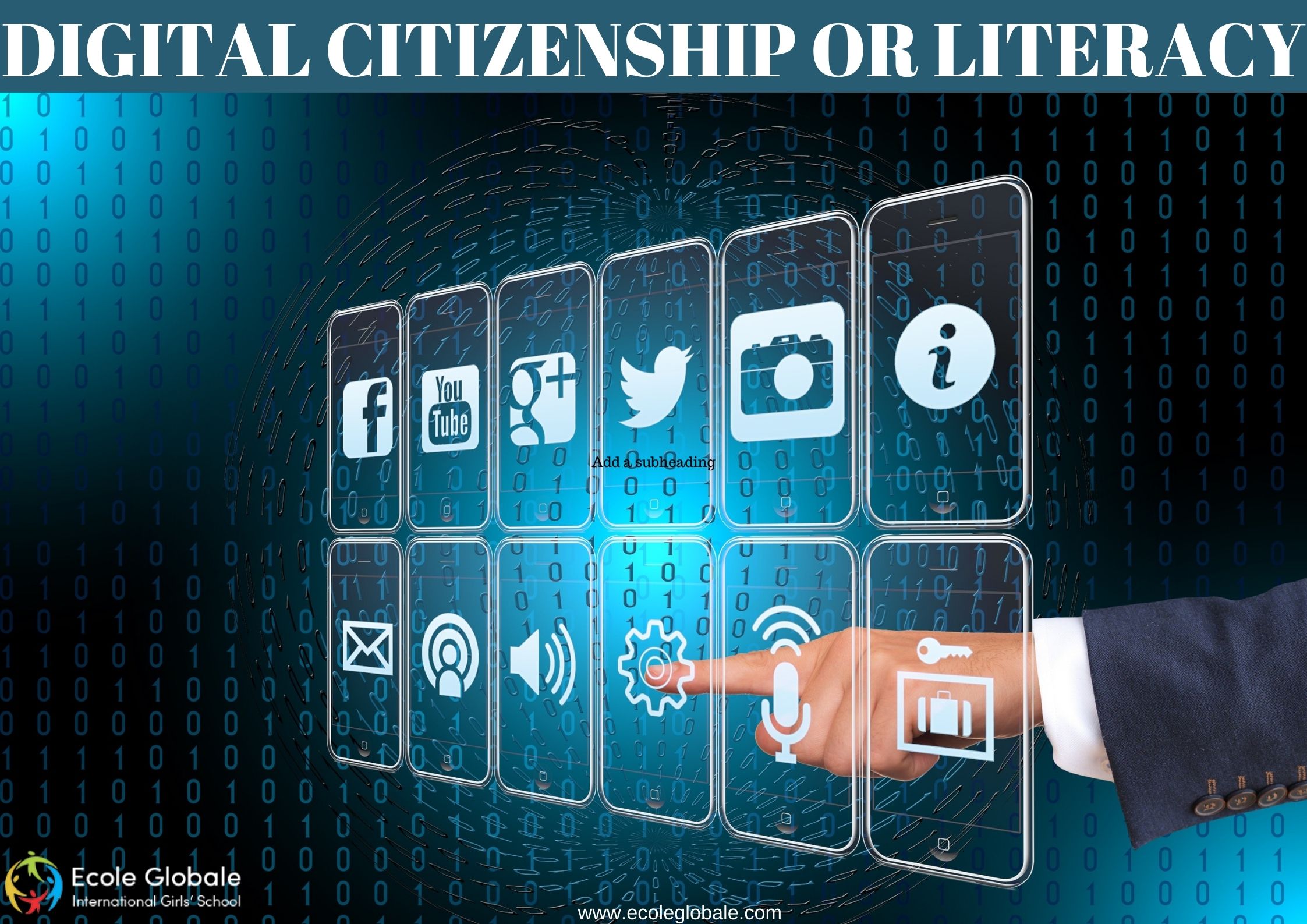Today’s students are expected to master and use abilities that are vastly different from those required of prior generations. These abilities include using a range of tools and platforms to communicate and collaborate, mastering digital literacy, thinking critically, and solving complicated challenges. The tremendous amount of information and resources available on the internet, along with the opportunity to connect with classmates and educators almost instantly, creates extremely engaging and collaborative learning settings. Students can explore their passions and acquire educational resources and experiences at any time, from any location, and at their own speed by going online.
While media and technology have immense potential for learning, young people want assistance and education in order to learn how to make sound decisions in the digital world. Half of the kids and over a quarter of parents, according to the Common Sense report “Technology Addiction: Concern, Controversy, and Finding Balance,” are addicted to their mobile devices. According to the “Common Sense Census: Media Use by Tweens and Teens,” nearly half of teens multitask with social media while doing their assignments, interfering with their own learning. In addition, according to a recent analysis from Stanford academics, 82 percent of middle schoolers can’t tell the difference between a “sponsored content” ad and a legitimate news piece on a website.
State legislators are taking steps to guarantee that students have the digital literacy and citizenship skills they need to take full advantage of online learning possibilities as states engage in 21st-century technological upgrades. These include assisting students in determining the source and veracity of online content as well as practicing safe and ethical online behavior. boarding Schools may play an important role in teaching, empowering, and engaging children in technology best practices.
What is the difference between digital literacy and citizenship?
Fluency in the usage and security of interactive digital tools and searchable networks is referred to as digital literacy. This involves the ability to learn, collaborate, and produce with digital technologies in a safe and productive manner. “Learner at the Center of a Networked World,” a 2014 report by the Aspen Institute Task Force on Learning and the Internet, advises that governments and districts create policies to ensure that digital literacy is taught as a basic ability in schools.
The term “digital citizenship” refers to a broader idea that typically includes the concept of “digital literacy.” The norms of proper, responsible behavior when utilizing technology are characterized as digital citizenship. Digital literacy is one of nine fundamental characteristics of digital citizenship, according to the International Society for Technology in Education’s “Digital Citizenship in Schools.”
Can all users, if they wish, engage in a digital society at acceptable levels?
Do users have the knowledge and protection they need to purchase and sell in the digital world?
Digital Communication: Are consumers aware of the several types of digital communication and when each is appropriate?
Digital Literacy: Have people spent time learning about digital technologies and sharing what they’ve learned with others?
Digital Etiquette: When utilizing digital technology, do users think about others?
Are users aware of the regulations (rules, policies) governing the use of digital technologies?
Users’ Digital Rights and Responsibilities: Are users prepared to defend their own digital rights while also protecting the rights of others?
Digital Health and Wellness: When using digital technology, do users consider the hazards (both physical and psychological)?
Do users take the time to secure their own data while also taking care to protect the data of others?
Utah’s state action mandates that schools teach students about safe technology use and digital citizenship. They’re in charge of empowering kids to make informed media and internet decisions, as well as assisting parents in having productive conversations with their children about safe technology use. Teacher-librarian obligations in Washington have been expanded to include teaching students about digital citizenship, which includes how to be critical consumers of information and how to use internet resources deliberately and strategically. Maine’s commissioner of education is required to design a program of technical assistance in digital literacy, which includes professional development and training for educators on how to properly use online learning materials.
In 2016, Washington went even further, enacting the most comprehensive digital citizenship legislation ever. In public schools, Senate Bill 6273 emphasizes safe technology use and digital citizenship. Students, parents, teachers, librarians, and others will be able to participate in continuing discussions about safe technology use, internet use, digital citizenship, and media literacy as a result of the legislation.
Federal Intervention
In December 2015, the Every Student Succeeds Act (ESSA) was signed into law, reauthorizing the Elementary and Secondary Education Act. ESSA provides additional measures that encourage students to use technology to improve their academic performance and digital literacy. Improve for professional development aimed at improving educators’ and school leaders’ ability to use technology to support teaching and learning is included. The law allows school districts to outline how they will build effective school library programmes that will allow kids to increase their digital literacy abilities while also improving their academic performance.









